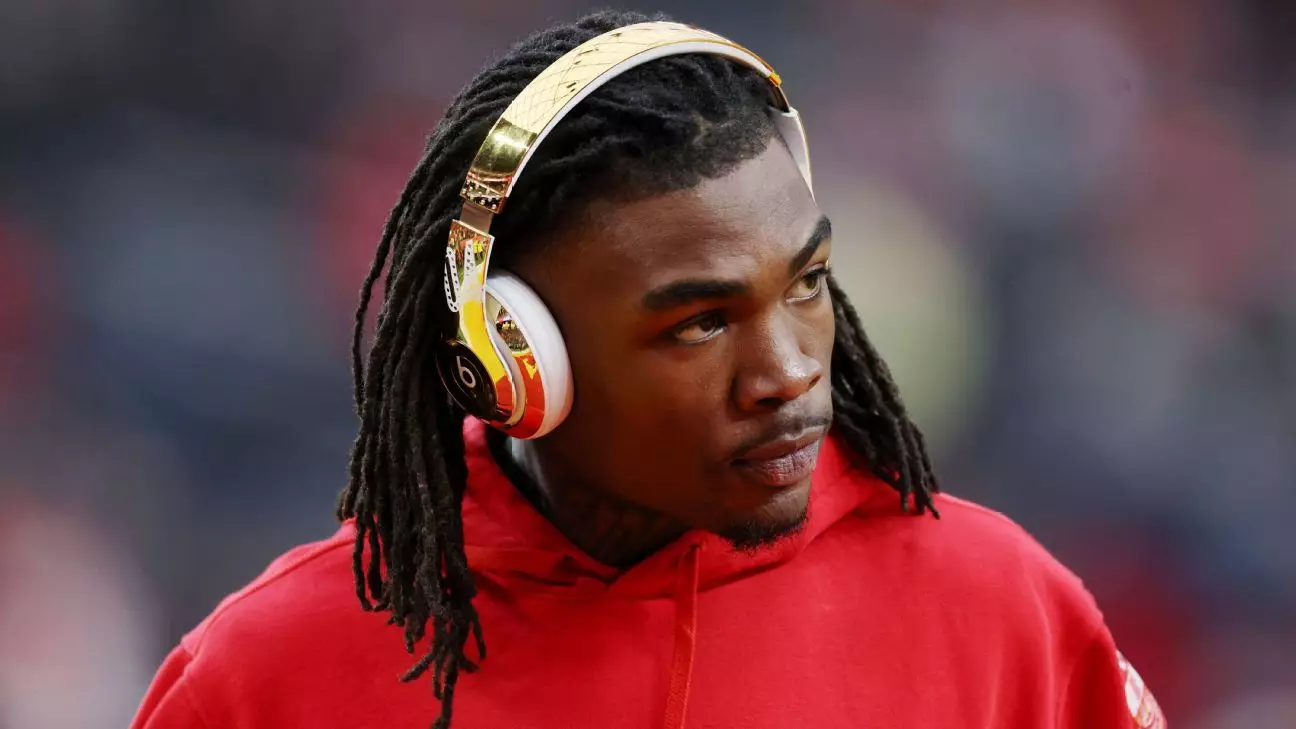In the high-profile world of professional sports, athletes often seem larger-than-life, adored for their talent and achievements. Yet, beneath this glamorous veneer lies a troubling reality—public figures are vulnerable to the same human flaws that plague anyone, often amplified by their fame. Rashee Rice’s recent legal troubles serve as a stark reminder that fame does not shield one from accountability. His reckless behavior, culminating in a multi-car crash after speeding at nearly 120 mph, exposes a disturbing disconnect between responsibility and privilege. It’s imperative that society begins questioning whether the adulation often accorded to athletes fosters a mindset that trivializes serious consequences and encourages reckless conduct.
The Dangerous Myth of Invincibility
Rice’s case underscores a broader cultural issue: the pervasive myth that being talented or successful grants immunity from repercussions. His recorded speed, exceeding legal limits by more than twice, illustrates an extraordinary disregard for public safety. Despite the evident danger, Rice’s response—apologetic yet seemingly detached from the gravity of the situation—reflects a troubling attitude that minimizes the potential harm of such actions. The fact that he paid restitution and received deferred adjudication might seem positive on paper, but it obscures the necessity for genuine reflection and change. Society must challenge the notion that coming from a position of relative privilege allows one to skate by without significant consequences—yet, in sports and beyond, this myth persists, often with tragic results.
Accountability Versus the Myth of Redemption
While Rice’s acknowledgment of his wrongdoing and his expression of remorse are steps in the right direction, the manner in which such incidents are often managed raises serious questions. The NFL’s potential to discipline Rice with a multi-game suspension reveals a tendency to treat serious misconduct as a mere procedural hurdle rather than a catalyst for cultural change. The emphasis on “monitoring” and “review” can be viewed as an attempt to protect the sport’s image rather than address underlying issues of reckless entitlement. Society needs sports leagues to adopt a tougher stance—one that prioritizes moral responsibility over image management. Athletes, particularly those with a platform, must understand that their actions carry weight beyond their personal lives, impacting public perceptions and societal standards.
The Broader Implications for Society
The incident involving Rice is not an isolated case but a reflection of societal attitudes toward power, responsibility, and privilege. When individuals with influence indulge risks that threaten public safety, it perpetuates a dangerous message: that consequences are negotiable, and that success can overshadow moral accountability. This mindset infiltrates our social fabric, fostering a culture in which the most talented or privileged are often excused or given leniency for destructive behaviors. Such attitudes undermine the very fabric of social responsibility and threaten to normalize reckless conduct as an acceptable part of privilege-driven entitlements.
Challenging the Status Quo
The solution lies not only in punishing offenders but in challenging the broader societal norms that enable such behavior. Athletes like Rashee Rice should serve as cautionary tales—reminders that fame is a double-edged sword. Power should not translate into immunity; instead, it demands greater accountability. Society must foster a culture where respect for safety and responsibility takes precedence over the fleeting allure of speed and thrill-seeking. Institutional responses need to be aggressive and genuine, pushing for a paradigm shift where privilege does not shield individuals from the consequences of dangerous actions but rather compels them to reflect, grow, and lead by example. Only then can we hope to curb the reckless glorification of privilege and promote a more responsible, mature sporting community that genuinely embodies the values we expect from public figures.

